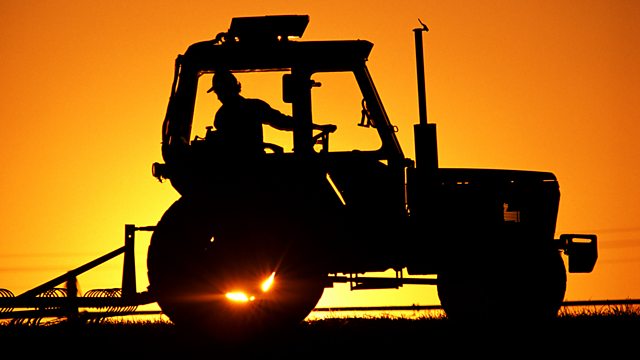
Photosynthesis, Green gas, Food forensics
The latest farming news, including pioneering research into photosynthesis, a new green gas mill to produce biomethane for the gas network, and a food forensics lab.
Today scientists are unveiling what they describe as a breakthrough which could increase crop yields by 15%, simply by better harnessing the power of the sun.
Researchers at Illinois University have used GM technology to improve photosynthesis - the process of converting sunlight into food.
The renewable energy company Ecotricity is launching Green Gas Mills - aiming to create a network of anaerobic digesters all fed with grass and each producing biogas which would be put into the gas network. We speak to the company's founder Dale Vince.
This week we've been taking a closer look at food standards and testing. Since the horse-gate scandal in 2013, retailers have been keen to back up the claims on their labels in-store, about where their food is from. So they now regularly send off samples to be tested in the lab. But how can a laboratory discover exactly where food is produced, and to what standard? Anna Hill went to meet Alison Johnson, managing director at Food Forensics, which uses the same techniques as police forensics and archaeological research to analyse food.
For some British farmers growing bird seed is proving a useful additional crop. Nicholas Watts is a keen ornitholgist who farms in Lincolnshire, and his hobby turned into a business 20 years ago when he began growing small amounts of bird seed. Over the years, demand has grown and he's now giving several hundred acres of prime arable land to growing bird food. Howard Shannon reports.
Presented by Charlotte Smith and produced by Emily Hughes.
Last on
Broadcast
- Fri 18 Nov 2016 05:45Βι¶ΉΤΌΕΔ Radio 4 FM
Podcast
-
![]()
Farming Today
The latest news about food, farming and the countryside

